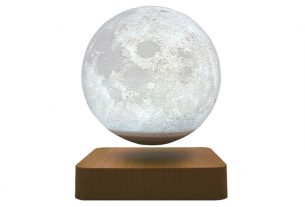
The latest video in Dove’s Real Beauty campaign isn’t about beauty at any size like most of the previous ones. It’s about how much beauty you see in yourself–and how much a complete stranger sees in you. They asked women to describe themselves and for strangers to describe them after first meeting, then had an artist draw sketches based on each description. The video shows the process and the outcome.
You can never simply look at yourself like other people see you. You can look in a mirror, sure, or at a photo or video. But none of those things are quite the same as simply looking at a person, are they? On top of that, what you see in the mirror is cloudy–and I don’t just mean literally from tiny fingerprints and splashed water. Your reflection is layered with memories of the pretty girls whose hair you wanted in high school and the boy who taunted you for being too pale or too fat or too something. It’s colored in with mean nicknames–both the ones of middle school classmates and the ones you’ve called yourself.
The Real Beauty campaign hasn’t been free of criticism. After all, in the end, we know that what Dove would really like is to sell you some soaps and lotions and deodorant. I’ve read plenty of blog posts complaining that there’s a conflicting message when a company that sells products ostensibly to make you more beautiful is telling you you’re already beautiful. But I generally don’t think of Dove products as “be more beautiful” products so much as “be cleaner” products. Even if you think of yourself as beautiful, you’re likely to still want to wash your hair and use the occasional moisturizer. That said, I perhaps wouldn’t have made the choice to run this campaign and have “Beauty enhancement” as a category of products:

Related, if you’d like to read a case study that uses the words “Bom Chicka Wah Wah” (because how often does that opportunity come along?), read Daniel O’Donnell’s 2008 Unilever’s Dove and Axe: Examples of Hypocrisy or Good Marketing?” In short: those products provide two very different advertising messages coming from the same parent company.
All that aside, this new video is interesting to watch and worth a moment of thought. How would you have described yourself? How would a stranger? As harsh as we often are on ourselves, I think it’s likely that strangers tend towards the complimentary. Imagine yourself in this scenario–would you answer “describe the woman you just met” with, “Wow, you’ve never seen such a hideous beast!”? Though I would expect the truth to lie somewhere in the middle, of the pictures they show, the drawings based on strangers’ descriptions are surprisingly accurate. I’m far too old to be a One Direction fan, but maybe those boys got something right. If only you saw what I can see–you don’t know you’re beautiful.



All but two are white, and the two women of color have only a few seconds total air time.
All are average to slim in weight, and only the slimmest women are shown full body.
The emphasis of how they look better than they think they do is that they look better *to men* than to themselves.
I could go on at length, but you get the idea.
This isn’t inspiring or cutting edge. It’s junk food with the artificial color removed. Still junk food, they just think you might feel better about swallowing it.
It’s not going to change the world. But sometimes junk food is delicious.
I’ve seen several blog posts and FB posts making similar comments. But I’ve seen far more by women who said they enjoyed it. That it made them feel good. And frankly, this is a week where we could use more videos that make people feel good.
But they don’t want you to know it’s junk food. They are selling it as a healthy salad with grilled chicken.
Where do you draw the line on ‘making people feel good’? It’s okay to define beauty as thin/white/pre-menopause as long as it makes (fairly young white women) feel good? That’s not okay to me. Feeling good by putting down (not white/not thin/not young/not whole) other people is shallow and sad.
It’s not even meant to make people feel good about themselves. It’s to make people feel good about buying a product. This is *marketing*. Pure marketing, albeit cleverly packaged. With all the amazing art in the world, why are we reposting ad campaigns?